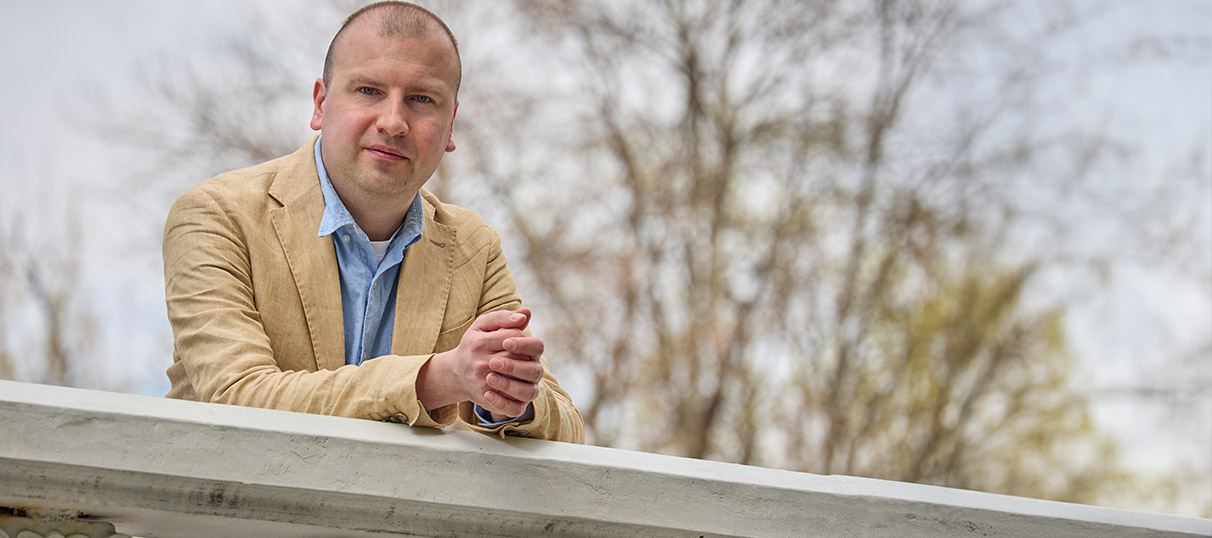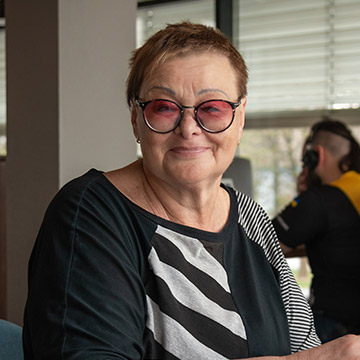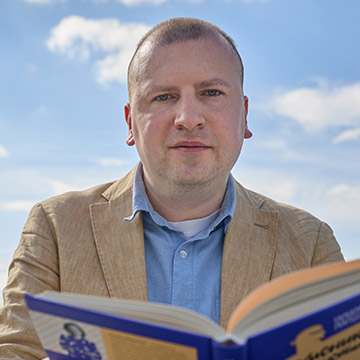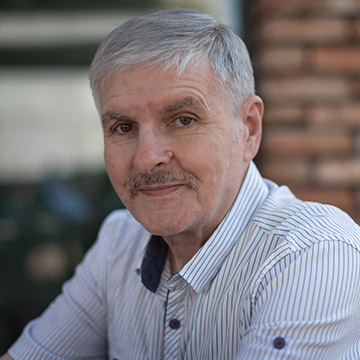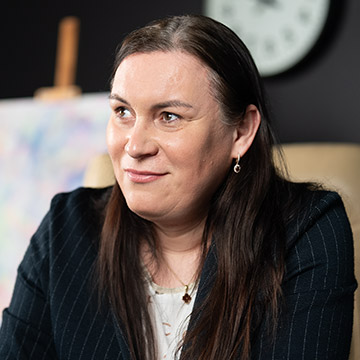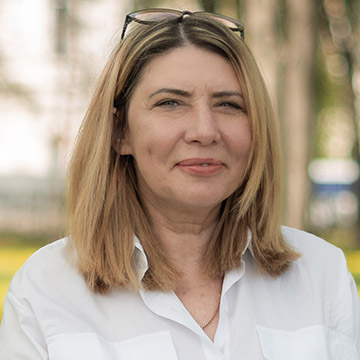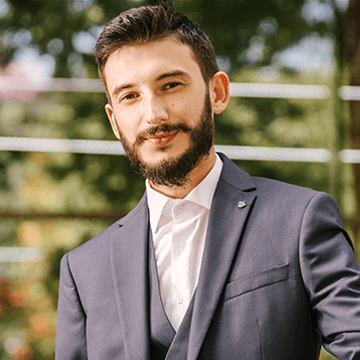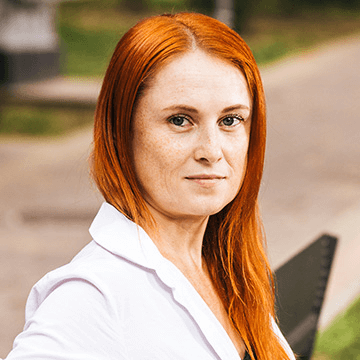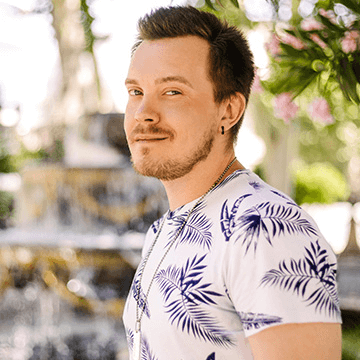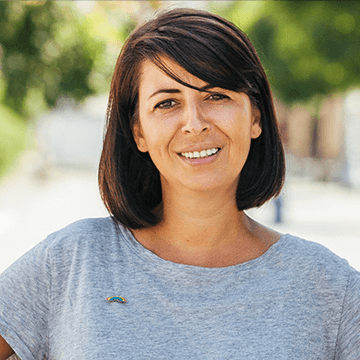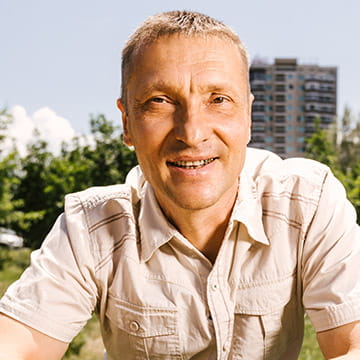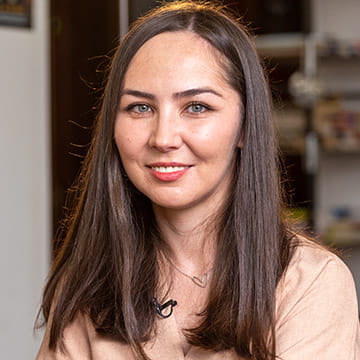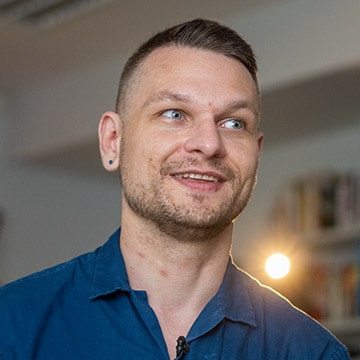Vasyl’s story
Kharkiv, Ukraine
“HIV prevention, for me, it's really about taking care of the health of the community that I belong to.” The organisation that Vasyl leads, Spectrum Kharkiv, focuses on using peer-to-peer methods to support the LGBTQ+ community and refer them for HIV testing, while providing social support and other essential services. The ongoing conflict has drastically altered the way of life in Ukraine, and he believes it is vital to respond to the unique “challenges of our time and to the needs of our clients.” It is imperative that “humanitarian support should go hand in hand with HIV prevention for the community.”
The ongoing conflict in Ukraine has intensified challenges for the LGBTQ+ community, as Vasyl notes encouraging people to “maintain interest in and take care of their own health is an extremely difficult task now.”
“2022-2023 changed the situation with HIV in Ukraine, including for the LGBTQ+ community. But unfortunately, we are unlikely to have enough data to understand exactly how right now, or at least we will get it gradually.” The war has caused people to change priorities and life values, with simply surviving being at the forefront of people’s minds.
Migration is having a big effect on the HIV epidemic. He has met many members of the community who have moved several times, or even more than a dozen times, in just two years. He explains how “being in a state of displacement also affects a person's behavioural practices, their sense of security, including safe sex practices.” This has been compounded by uncertainty regarding access to prevention services for those migrating to a new region. “If a person finds himself or herself in a new region, prevention services may not always be available to him or her. That is, they are used to receiving these services in their hometown, and in a new area they are afraid to ask where they can go to get HIV services or treatment because of fear and stigma.”
With the beginning of the full-scale invasion, it became more difficult to communicate health issues, and after all, HIV prevention is about that, communication. The issue of physical security came first, due to the hostilities and shelling. The issue of meeting basic needs came second. At best, health will be somewhere in third place.
Ultimately, according to Vasyl, progress starts from within the community and using a peer-to-peer approach is key to early detection.
He places great value on the importance of trust, and how connections within the community build trust in services and the support that is available, “it's about friendliness, about humanity, about being aware, accepting and trying. It’s about bringing someone to a service delivery point, it’s about openly communicating and considering prevention information. It's about overcoming this HIV stigma within the community, that is, the more people communicate about their own health and prevention, the less stigma there will be associated with HIV. It still remains a major barrier for us, along with stigmatisation of LGBTQ+ people and the community as a whole.”
It is hard for Vasyl to imagine what the future will hold. His hope is that one day their “efforts in the prevention and treatment of HIV will produce sustainable results and allow everyone to receive timely treatment.”
I would like to reach the point where “we have a more objective picture of the HIV epidemic in Ukraine, which will only be possible when our key populations feel free to seek prevention and treatment services. And so that we can really reach the 95-95-95 target.”
THE IMPACT OF RADIAN ON VASYL’S WORK
Vasyl applied for a RADIAN grant on behalf of Spectrum Kharkiv and together with their partner Alliance.Global, they are working to provide humanitarian support and HIV services to the LGBTQ+ community in Ukraine.
The burden of the war has created a need for additional resources to address the HIV epidemic. Medical resources are being exhausted to a faster and greater extent, and the efforts of doctors, nurses, and psychologists involved in HIV prevention and treatment are additionally directed towards people who have been called to military service.
Vasyl believes it is vital that the needs of key populations living with or at risk of HIV are not forgotten and are also prioritised when peace finally comes.



